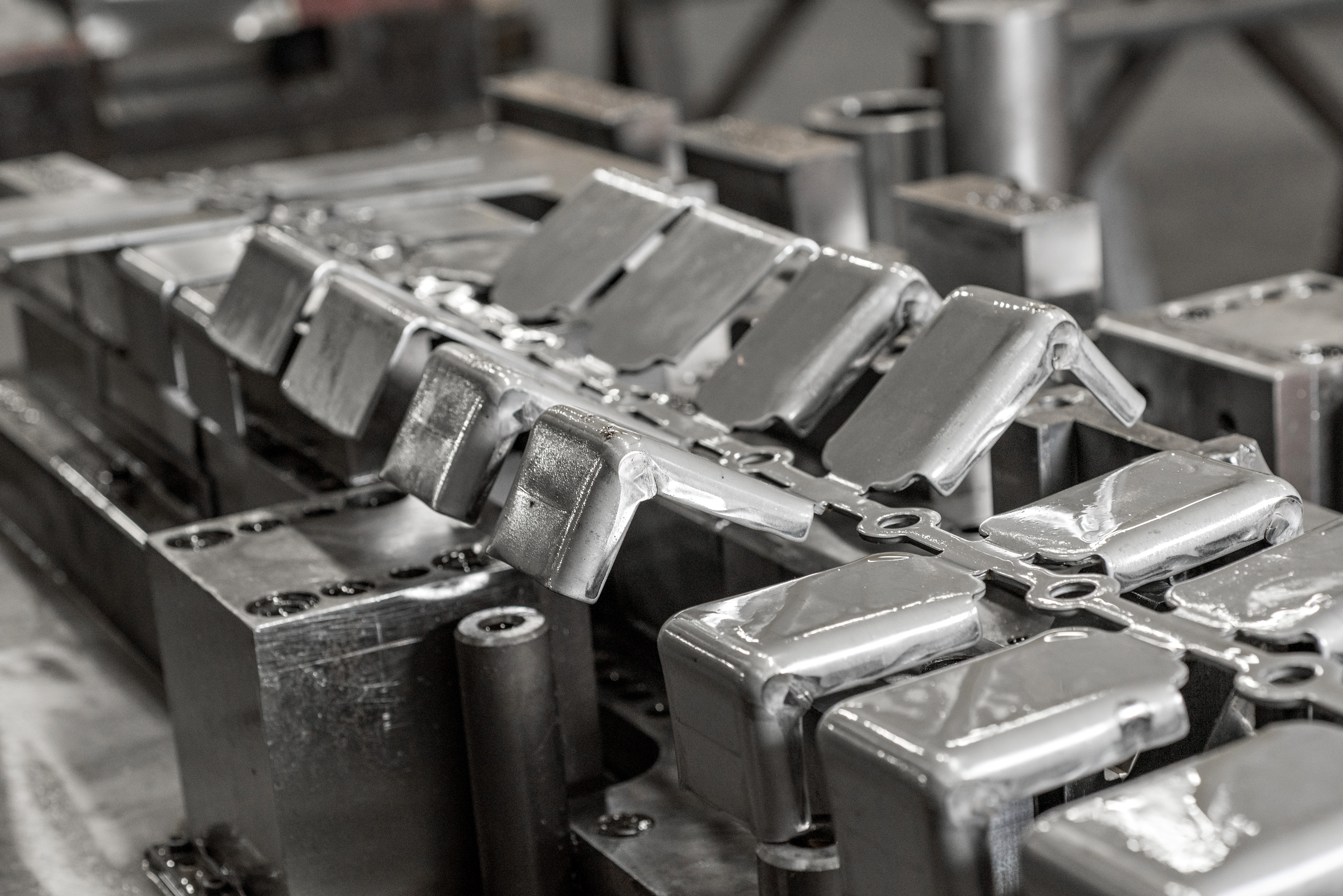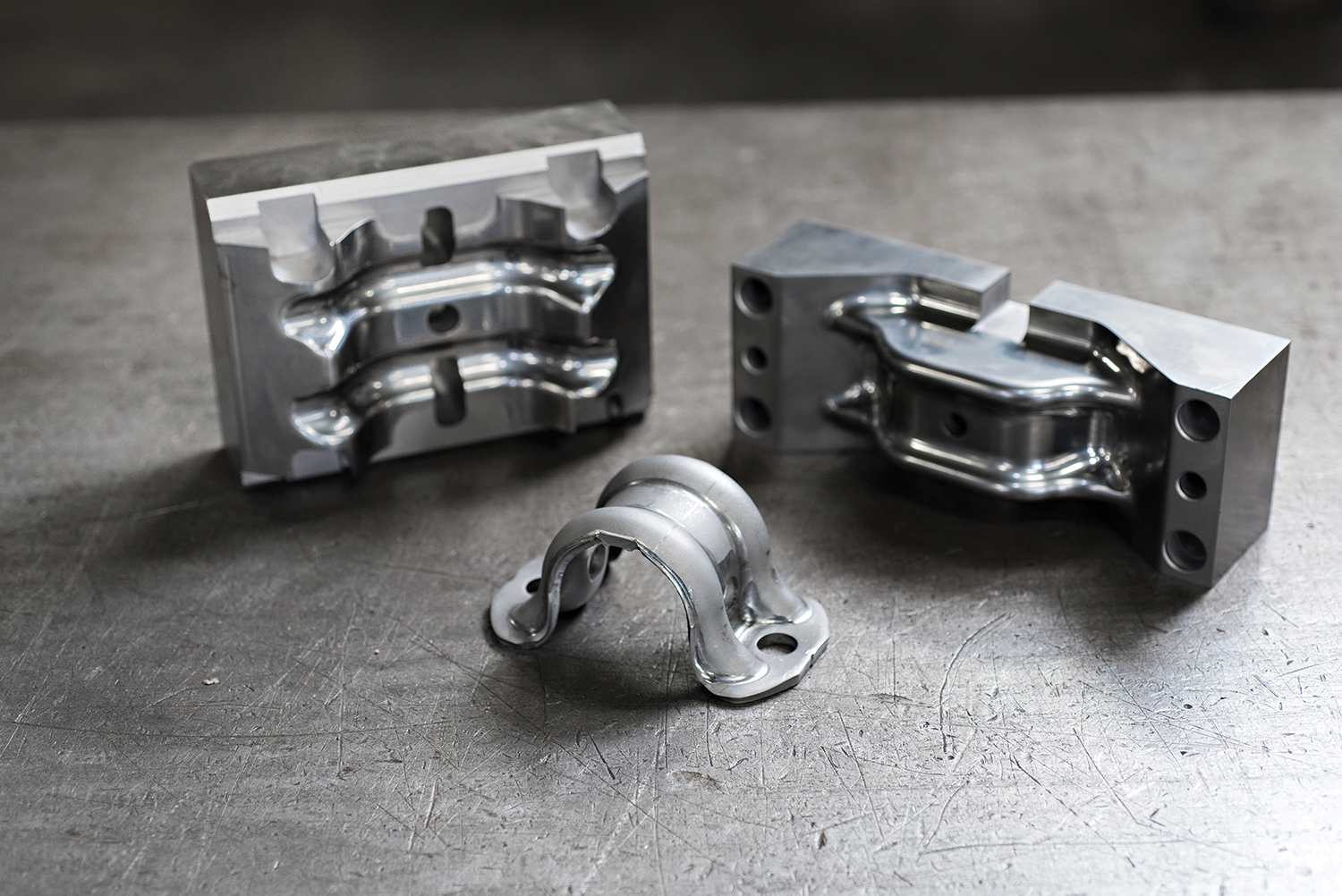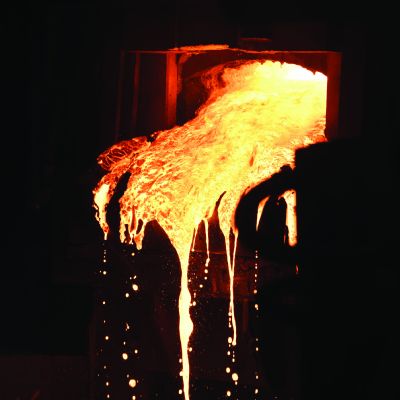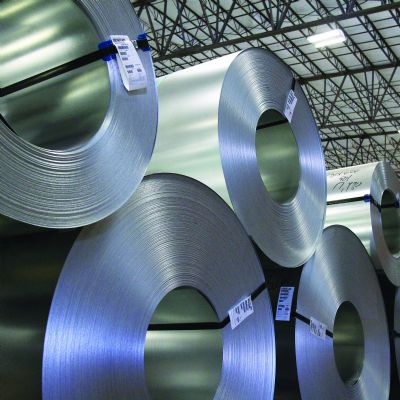How did the new coating work? “We went from worn out forms and gouging after forming 10,000 pieces,” recalls Bateman, “to being able to produce as many as 200,000 pieces before recoating. The difference was night and day.” Phygen applies its patented FortiPhy physical vapor deposition technology to create a thin and dense nanocrystalline coating structure onto any tool-steel substrate. Described by Phygen president Dave Bell, the process creates a high level of adhesion. And, it does so without pulling carbon from the tools. Temperature also varies among the various tool-coating processes. Chemical-vapor-deposition coatings and thermal-diffusion coatings usually are applied at temperatures greater than 1800 F. Phygen’s coating requires significantly lower temperatures, claims Bell, lessening the chance of distortion that can play havoc with tolerances and minimizing tool-hardness concerns. Bateman and Harsa laid out a host of applications where the coating has greatly extended tool life since then. (For related video, see this article online at www.metalformingmagazine.com.) “A bottom stabilizer bracket, made from Grade 70 steel, requires side wiping,” explains Harsa, “and the corners experienced a lot of compression and tension. This tore up an old coating, but with the Phygen coating, tool life quadrupled at least. We had been going through expensive forms after forming only 20,000 pieces. Now we may recoat after 6 months instead of after one day.” The coating also is applied on tooling responsible for forming spring plates. “We use the coating when drawing forms on the pockets, because the pockets are very high-wear, with friction on the sides of the punch,” Bateman says. “We also use it with excellent results on the shape punches for that part.” Savings on Material and Part Cleaning, Too By employing this coating process, Universal also can save on the type of tool steel it uses. “We have excellent results when using D2, properly heattreated for coating,” says Bateman. “Phygen provided us with a heattreat procedure for D2 and when followed, it has held up very well. D2 is not the most expensive tool steel, so we save some money when choosing these types of steels over some of the newer steels.” When recoating is required, turnaround is only 2 to 2.5 days, reports Bateman, which assists greatly in keeping Universal’s presses humming. Also, “as lubristic as these coatings are,” Bateman says, “we don’t have to use heavy drawing compounds that are hard to clean and that drive up finish costs on parts. Almost all of these parts are painted or plated, so we save on the cleaning because we can use less aggressive coolants.” MF

A bottom stabilizer bracket, made from Grade 70 steel, requires side wiping, with corners experienced a large amount of compression and tension. “This tore up an old coating, but with the Phygen coating, tool life quadrupled at least,” says Jim Harsa, senior tool designer at Universal Metal Products. “We had been going through expensive forms after forming only 20,000 pieces. Now we may recoat after 6 months instead of after one day.”
View Glossary of Metalforming Terms
See also: PHYGEN









